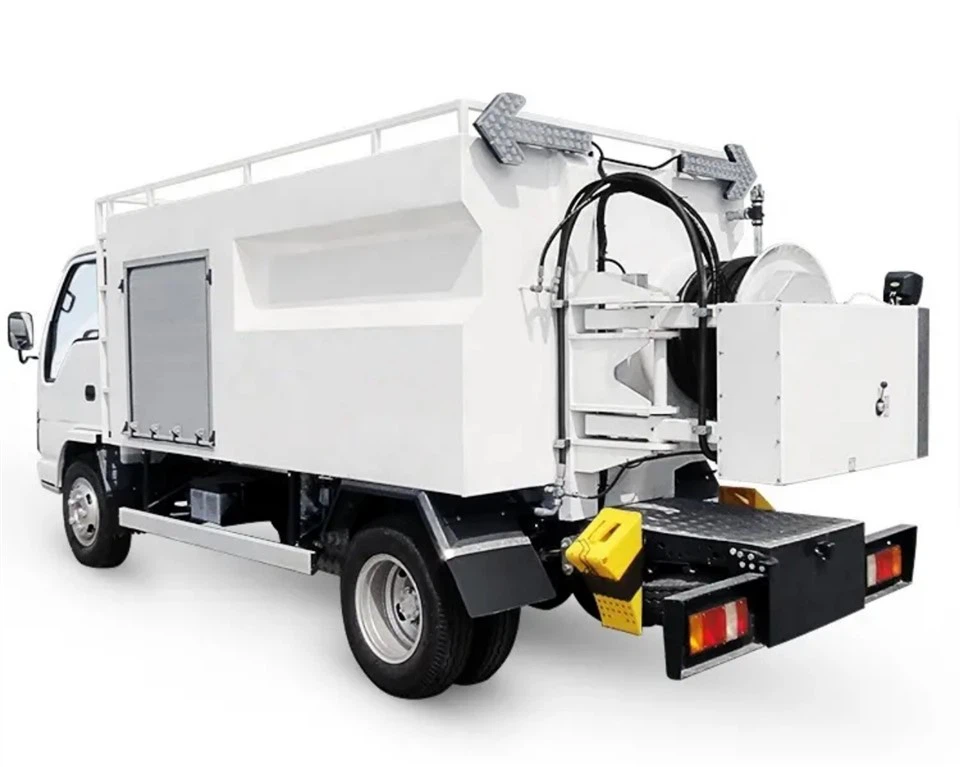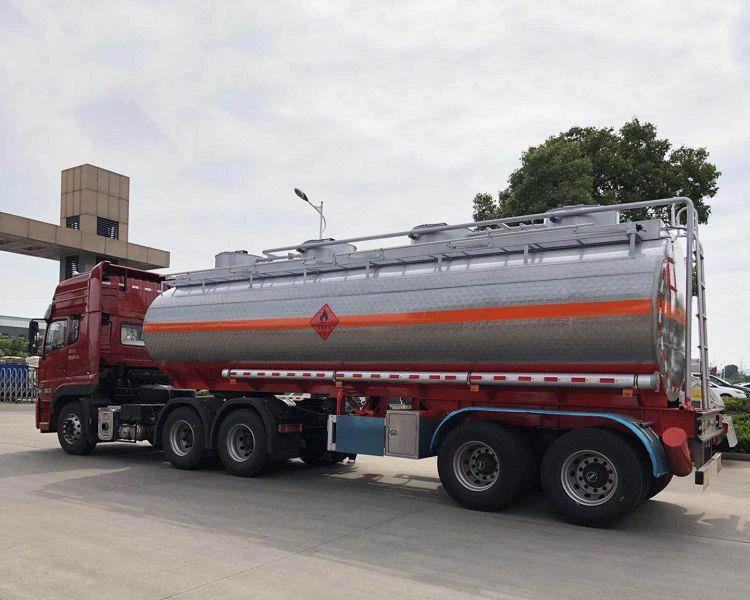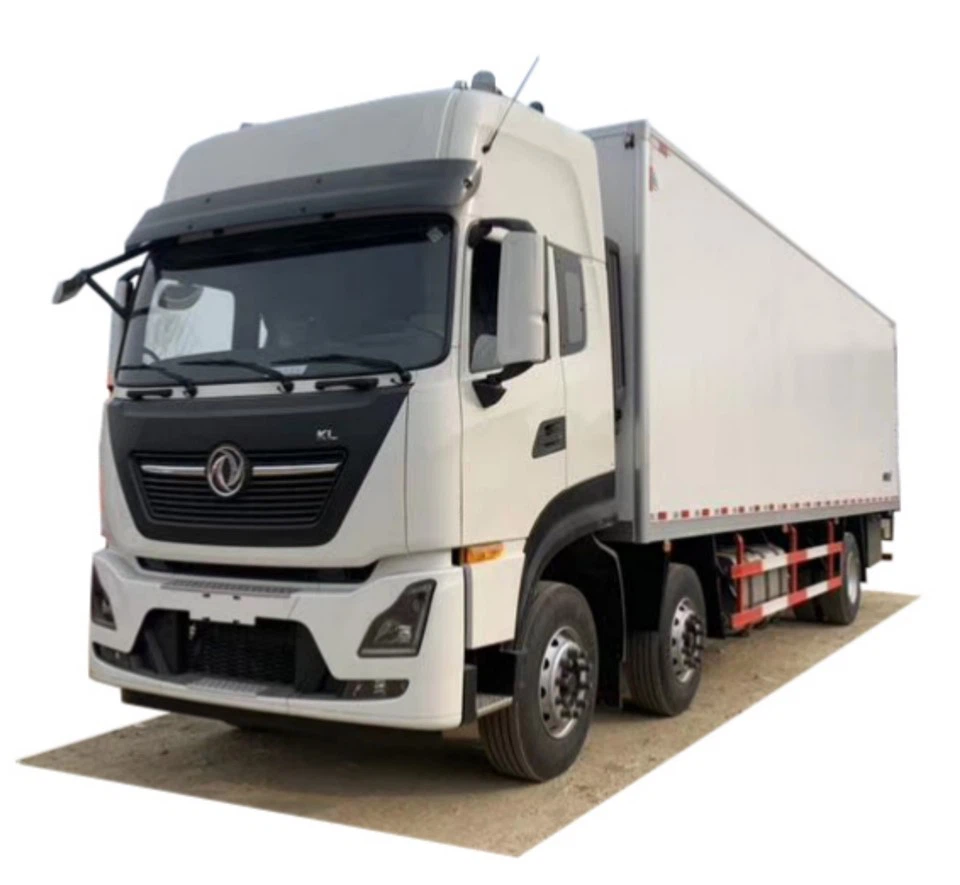Small Cargo Trucks: The Ultimate Guide for Efficient Transportation

Introduction
Small cargo trucks are becoming increasingly popular in urban environments and for businesses needing reliable, efficient transport solutions. Their versatility allows them to navigate through tight spaces, making them ideal for delivery services, small businesses, and even personal use. In this article, we will explore various aspects of small cargo trucks, including their benefits, types, regulations, tips for choosing the right truck, and more. Our goal is to provide valuable insights for potential buyers and users of these vehicles.
What Are Small Cargo Trucks?
Small cargo trucks are compact vehicles designed to carry goods while maintaining a manageable size for easy maneuverability. They typically have a payload capacity that ranges from 1,000 to 8,000 pounds. Unlike larger trucks, small cargo trucks are often easier to drive and park, making them an excellent choice for both personal and commercial use.

Types of Small Cargo Trucks
- Pick-up Trucks: Versatile vehicles with an open bed, ideal for transporting various goods.
- Vans: Enclosed cargo space offers security and protection for sensitive cargo.
- Box Trucks: Provide a sizable enclosed space that can be fitted with shelves for organization.
- Mini Trucks: Compact and often designed for city driving, perfect for delivering goods in urban areas.
Benefits of Using Small Cargo Trucks
Choosing a small cargo truck provides numerous advantages for businesses and individuals alike. Here are some key benefits:
1. Maneuverability
Small cargo trucks are designed to navigate through tight city streets and crowded parking lots with ease, making them perfect for urban deliveries.
2. Fuel Efficiency
Compared to larger trucks, small cargo trucks are typically more fuel-efficient, leading to lower running costs and fewer emissions.

3. Cost-Effective
Purchasing or leasing a small cargo truck can be more affordable than larger models, making them accessible to small businesses and startups.
4. Versatility
Whether you need to transport furniture, deliver packages, or haul equipment, small cargo trucks offer the flexibility to handle various tasks.
5. Easier Parking
With a smaller footprint, these trucks can be parked in spaces that would be unsuitable for larger vehicles, saving time and minimizing stress.
Choosing the Right Small Cargo Truck
When selecting a small cargo truck, several factors need to be considered. Here are some essential tips:
1. Assess Your Needs
Determine the primary purpose of the truck. Will you predominantly transport boxes, furniture, or equipment? Knowing your specific requirements will help narrow down your options.
2. Evaluate Payload Capacity
Check the payload capacity of the truck to ensure it can handle your typical load. Some trucks may be sufficient for lighter items, while others may be designed for heavier cargo.
3. Consider Fuel Efficiency
Look into the fuel economy of various models. This can significantly affect your operational costs over time, making it an essential consideration.
4. Explore Financing Options
Evaluate whether you want to buy, lease, or rent a small cargo truck. Each option carries different financial implications that should be considered based on your budget.
5. Read Reviews and Testimonials
Research customer reviews and ratings to get insights from current owners. This can provide information about performance, reliability, and maintenance issues.
Regulations for Small Cargo Trucks
When operating a small cargo truck, it’s crucial to understand local regulations and requirements. Here are key considerations:
1. Licensing and Registration
Most jurisdictions require a valid driver’s license and proper registration for commercial vehicles. Check specific requirements in your area.
2. Insurance Requirements
Commercial auto insurance may be mandatory, depending on how the truck is used. It’s advisable to consult an insurance provider to get the best coverage.
3. Emission Standards

Some regions may have specific emission standards that small cargo trucks must meet. Be sure to stay compliant to avoid fines and contribute to cleaner air.
4. Weight Limitations
Understand the weight restrictions on local roads and highways to prevent overloading and damaged roadways.
Examples of Popular Small Cargo Trucks
| Model | Type | Payload Capacity (lbs) | Fuel Economy (mpg) | Price Range |
|---|---|---|---|---|
| Ford Ranger | Pick-up | 1,860 | 21 City / 26 Highway | $25,000 – $35,000 |
| Ram ProMaster City | Van | 1,885 | 21 City / 28 Highway | $25,000 – $30,000 |
| Nissan NV200 | Van | 1,480 | 24 City / 26 Highway | $23,000 – $25,000 |
| Chevrolet Express 2500 | Van | 3,200 | 13 City / 17 Highway | $30,000 – $40,000 |
Tips for Maintaining Your Small Cargo Truck
Regular maintenance is crucial for ensuring the longevity and efficiency of your small cargo truck. Here are some practical tips:
1. Regular Oil Changes
Change the oil as per the manufacturer’s recommendations to keep the engine running smoothly.
2. Inspect Tires Regularly
Check tire pressure and tread regularly to ensure safety and optimize fuel efficiency.
3. Keep the Truck Clean
A clean truck not only looks better but also helps prevent rust and corrosion.
4. Monitor Fluid Levels
Regularly check and top off essential fluids, including brake, transmission, and coolant fluids.
5. Schedule Professional Inspections
Have a qualified mechanic perform a thorough inspection at least once a year to catch any potential issues early.
Conclusion
Understanding the various aspects of small cargo trucks can help you make informed decisions about purchasing and operating one. Their advantages, types, and regulations offer essential insights for businesses and individual users alike. By following the tips and examples provided in this article, you can efficiently navigate the world of small cargo trucks and leverage their benefits for your needs.
Frequently Asked Questions (FAQs)
1. What is a small cargo truck best used for?
Small cargo trucks are best used for transporting light to moderate loads, making them ideal for deliveries, small businesses, and personal use.
2. Do I need a special license to drive a small cargo truck?
Typically, a standard driver’s license is sufficient, but regulations may vary by location. Always check your local requirements.
3. How can I improve the fuel efficiency of my small cargo truck?
To improve fuel efficiency, maintain regular service, ensure proper tire pressure, and avoid carrying unnecessary weight.
4. What type of insurance do I need for a small cargo truck?
Commercial vehicle insurance is often required, covering liability, cargo, and collision. Consult with an insurance agent to determine the best coverage options.
5. How often should I perform maintenance on my small cargo truck?
Regular maintenance should include oil changes every 5,000 to 7,500 miles, tire inspections monthly, and a yearly professional inspection.
6. Can I use a small cargo truck for personal use?
Absolutely! Small cargo trucks are versatile and can be used for personal projects, moving, or general transportation.
